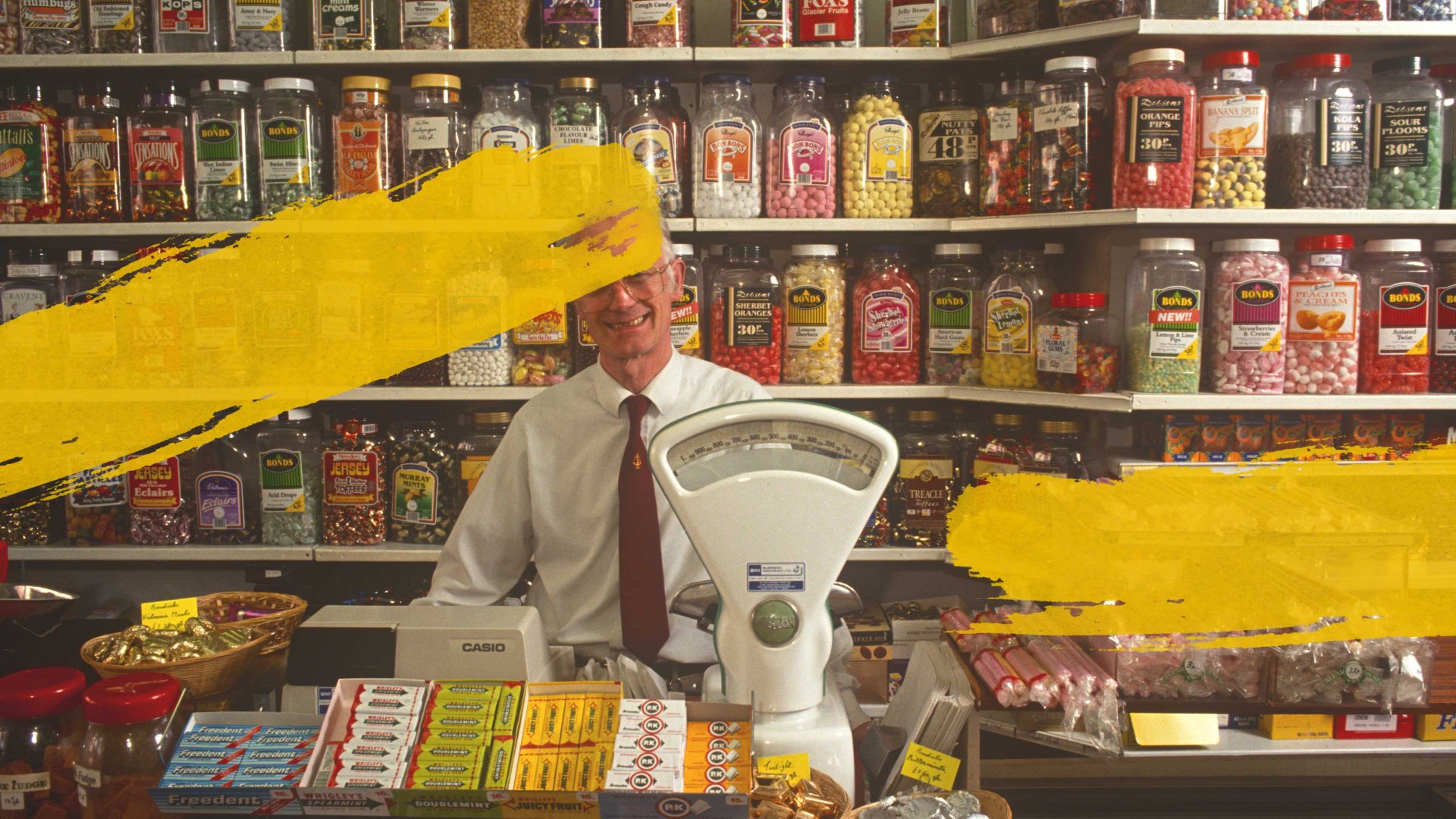Où sont les sherbets d’antan? You don’t have to be a medieval French poet writing a lament for the great women of yore in order to ask this question – and neither is it a brain-teaser of some sort: it’s a genuine question. How much did they cost? Maybe a tanner, possibly a shilling for two ounces of the miniature hand-grenade-rather-than-lemon-a-like bonbons, nestling in their scrotal-soft paper bag.
A bag you’d fondle lovingly as you rolled the first one around in your mouth, savouring its bitter-sweetness, and looking forward to prolongation – to the point of ecstasy – of that moment when, thinned to destruction, its casing dissolved and the sherbet sweetness flooded your budding mouth.
Où sont les sherbets d’antan? I cry once more – in Cockney parlance a sherbet dab = a cab, and is not to be confused with a Sherman tank = a… Well, you get the point: the early 1970s were an innocent era, what with Enoch Powell about to re-enter parliament, and the only black and brown people to be seen in these isles on television, being ridiculed. Jimmy Savile was on television as well, and radio all the time, introducing the likes of Gary Glitter and Rolf Harris…
OK, I’m not going to keep this bullshit up any longer: it was an era as filthily culpable as any other – perhaps worse – and its only redeeming feature was the cheapness and availability of sherbet lemons. Ones that looked like actual lemons – not just some vaguely ovoid bit of solidified sugary yellow goo, which is what the soi-disant “sherbet lemons” currently purveyed by English Heritage in their extensive range of attractive gift shops look like.
I understand the gift shops are attached to some significant examples of what the French call – along with the poetry of Villon – “patrimoine”; such as Kenwood House in Highgate, which is where, for the storied price of £3.75, a 137g tub can be obtained. Assuming the tub weighed in at an ounce, that means around 95p per ounce – a mere 1900% rate of retail inflation in the intervening half-century.
Not that you have to be ripped off blind by English-bloody-Heritage, in order to enjoy the powdery delights of olden times. (Not an allusion to cocaine, although it’s instructive that over the same period, this equally sought-after white powdery substance had declined in retail price, almost as much as sherbet has increased.) Attend Mr Bezos’s online emporium, and a few keystrokes, a viable credit card, and Prime membership (the premier way to destroy the planet) will ensure that within 24 hours just one of a whopping two-kilo motherlode of sherbet lemons will be dissolving on your greedy gob.
That’s right: you can get a whopping (and the 1970s intensifier seems only meet here) 70 ounces of Maynard’s Sherbet Lemons for £21.62 online, making them around 30p an ounce, a mere 300% more expensive than the ones old Mr Coggins used to sell me in his tuck shop. They also have the added advantage of actually having sherbet in them, unlike the ones English-bloody-Heritage flog to the rubes who rampage through their establishments.
I wouldn’t say the English Heritage pseudo-sweets ruined my Christmas – the family managed that, comme d’habitude – but nestling in their small plastic tub they looked like a crock of shit to me. On the English Heritage website, the “sherbet lemons” have two reviews. Emerick from California writes: “Wonderful lemon taste without being too sweet. Discovered these lemon drops when my husband and I visited Stonehenge. We live in California and I could not forget the taste of this candy. My husband initially surprised me by finding out how he could purchase and did so. Nice gift!”
Stonehenge alone accounts for around 80% of English Heritage’s revenues. The last time I visited the monument, I sat next to an American tourist on the absurd trailer-train, drawn by a Land Rover, that was carrying the paying cattle (sorry, people), from the sherbet lemon shop to the stones. Where was he going in England? Oh, just here – and to Salisbury Cathedral, because it’s en route: their cruise liner was moored at Southampton.
All told, he was going to be in the country for around six hours – but then that’s what so many cultures have become: something to suck on for a short while, before it dissolves into a sweet and slightly nauseous recollection. The lesson of which surely is – as one of the tourist’s compatriots memorably put it – “Never give a sucker an even break.”



